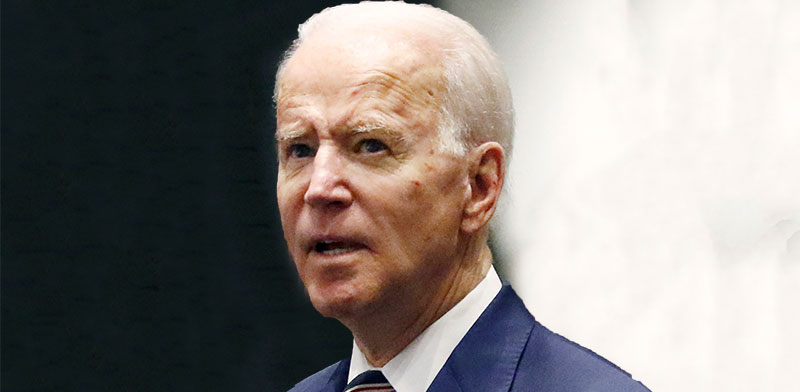
U.S. President Joe Biden supports lowering tax ceilings under which Americans will receive a direct payment, as part of the $ 1.9 trillion Corona aid package expected to be approved by the House of Representatives in the coming days.
As part of the change, between 8 and 12 million people who were supposed to receive checks under the program presented in the House of Representatives will not receive them. However, according to one estimate, the change will save the government only about $ 15 billion from the cost of the nearly $ 2 trillion plan. This is not the first time a similar case has occurred: Democrats have restricted the criteria for receiving checks once again in the past in order to appease lawmakers from the political center.
Now the new criteria for checks, amounting to $ 1,400, are: people who report an income of $ 75,000 on their own (now the income threshold from which they do not receive a check is $ 80,000); Households reporting income of $ 112,500 (constantly standing at $ 120,000 per year); Americans who together report $ 140,000 (the continuum now stands at $ 160,000).
Along with the checks and assistance to the unemployed, the bill as passed in the House of Representatives includes sums to be devoted to increasing the vaccination campaign, increasing aid to children, new aid to small businesses, money to help schools reopen and assisting state, municipal and tribal governments in nature reserves.
Asked by White House spokeswoman Jen Saki whether Biden supports the proposal, she said “he is comfortable with where the negotiations are.”
Maintain a front of 50 Democrats
It was not just the Republicans who opposed the way the checks were distributed. Some Democratic senators who are considered more conservative have called for limiting the amount of checks included in legislation. In order to pass the Assistance Procedure Act known as the Completion Procedure, Democratic Party leaders must not lose any of their 50 votes in the Senate. Democrats are running the procedure, which allows for the passage of legislation by a simple majority on budgetary issues, because Republicans doubt that additional spending is needed to encourage the economy.
Disagreement within the party could jeopardize Democrats’ plan to move the Senate aid package by the end of the week so it can reach Biden’s table for signature before March 14, the date on which existing aid plans enacted last year expire. The House of Representatives is expected to approve the Senate version of the package next week.
Under the Senate plan, the economic expenditure earmarked for securing income for the unemployed is the same as that transferred by the House of Representatives. Under the program, the unemployed will receive $ 400 a week assistance through Aug. 29.
The expected change in the package when it reaches the Senate has upset some of the progressive Democratic lawmakers in the House of Representatives. Alexandria Oxio-Cortez of New York expressed her disappointment and said in response that “conservative Democrats fought for the Biden administration to send fewer checks and they will be smaller than those given by the Trump administration.”
“This is a step that has almost no economic logic and is directed against an element of aid that is felt mainly by people on a daily level, it is a self-goal,” she added.
Today (Thursday) the Senate is expected to hold the first procedural vote on the transfer of the aid package. But a few days will pass during which the legislators will have to discuss the difficulties before returning the aid package to the House of Representatives for a final vote.
Once the Senate votes on all the amendments (and there is no limit to the amount of amendments that can be proposed), it will be able to move toward the approval of the legislation.
According to a report on American networks, Sen. Ron Johnson, a Republican from Wisconsin, plans to force Senate officials to read aloud the entire wording of the law, which is expected to add many more hours to the approval process. Some estimates suggest that the discussion may take up to 20 hours, followed by a marathon of votes on amendments to sections of it.